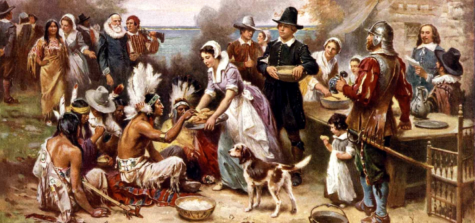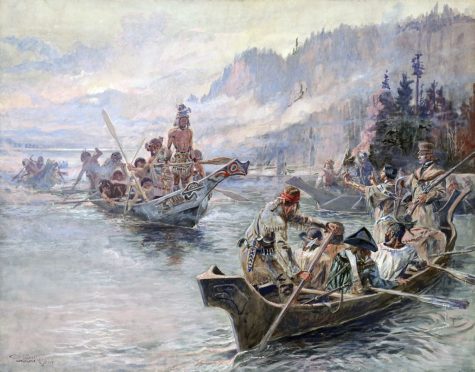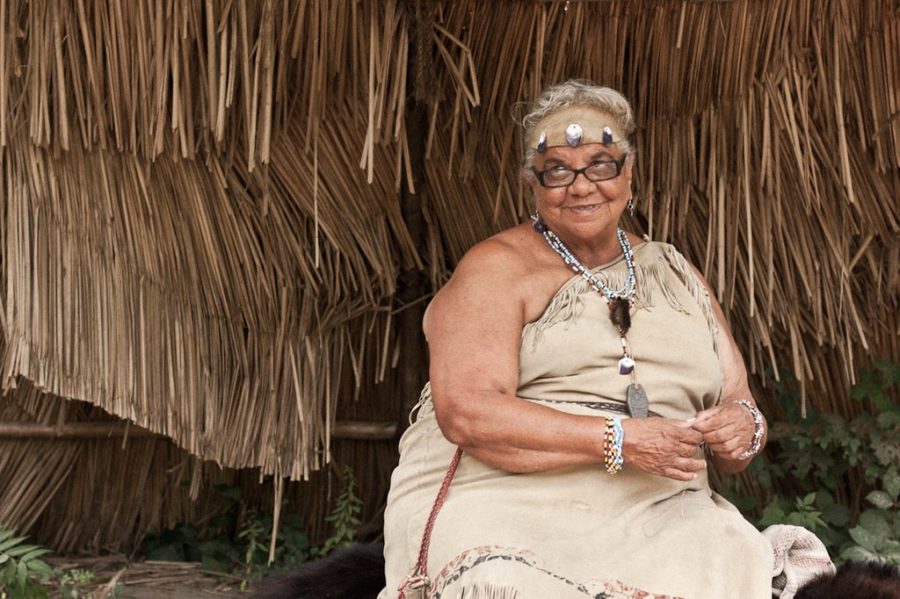The First Thanksgiving: Sugarcoated in Civility
Was Thanksgiving really a time of peace and joy between the Native Americans and colonists?
Today, the Wampanoag tribe has a reservation at Martha’s Vineyard in Massachussets. There are only about 300 people living there.
To help Americans sleep better at night, we recite a fairy-tale: the story of historical civility at the inception of our nation: Thanksgiving. The day on which the pilgrims of Plymouth, Massachusetts, ever so graciously dined with the Native Americans of the Wampanoag Tribe, indulging in a giant feast from their bounteous fall harvest.
Thanksgiving at Plymouth today consists of two different events: A parade of people dressed up like colonists beating drums, and indigenous people and their supporters standing at the top of Cole’s Hill protesting the whitewashed genocide and mass murder of their ancestors, as well as the theft of their rightful land. They refer to Thanksgiving as ‘the day of mourning’, and this annual gathering of remembrance and justice is coming up on its 50th anniversary this Thanksgiving.
Joey Sims, a sophomore at Lafayette High School, claimed that if he happened to be in Plymouth, Massachusetts on the day of Thanksgiving, he would rather participate in the parade. “I would rather enjoy the holiday and spend time with my family feeling thankful, than spend it feeling depressed standing on Cole’s Hill.”
A holiday that is so widely celebrated by Americans today is based on a story riddled with holes. From children’s books to high school textbooks, the story of Thanksgiving is derived from single-sided sources and single-sided perspectives. In fact, very little is actually known surrounding the events, because there were only two first-hand accounts written about the feast.

In one of the versions of the tale of Thanksgiving, Squanto, a member of Wampanoag tribe, taught his trades of survival regarding fishing, hunting, and agriculture. With the help of him and his tribe, the Pilgrims were able to survive their first harrowing year. Shockingly, the Native Americans say that there was never a favor returned for their services, and instead the pilgrims destroyed their grain stores and robbed the Wampanoag tribes’ graves (according the ‘United American Indians of New England’), though there is little direct evidence of this.

Thanksgiving has also always been portrayed as some kind of genuine friendship between the Native Americans and the Pilgrims, a huge feast that evolved spontaneously out of love for each other. However, that couldn’t be farther from the truth. A large number of the colonists were given massive amounts of land, which the natives already owned, by their governing body. As a result of this land grab, the relationship between indigenous people and the colonists was never something special or heart-warming. It never excelled beyond mere allies against other tribes and an aliance based on mutual need.
The first real ‘Thanksgiving’, according to a professor at University of Texas at Austin, was in Mystic, Connecticut, held by a tribe of Pequot Indians. They were having their own feast called the ‘green corn festival’. Settlers (not Pilgrims) soon came and slaughtered more than 700 Native Americans. Massacres of the Natives were thereafter routinely followed by the ‘days of Thanksgiving’.
Skylar Smith, a sophomore at Lafayette High school, gave her insight on how to deal with the massacres of the past. She stated, “We shouldn’t hide our history, and the right thing to do is to be honest about it. Especially in school, kids shouldn’t be learning false or sugarcoated information and then later on find out the truth about the first Thanksgiving. Lies of our past shouldn’t perpetuate.”
Regardless of the absence of unquestionable evidence about the origins and truths about Thanksgiving, we shouldn’t sweep anything about the holiday under the rug. Being informed about the history of any culture or ethnicity of our nation, or any nation, is extremely valuable: it can move our society forward. Only when we acknowledge the sins of our past will we be able to strive towards a future in which we can all have something to feel thankful for!



